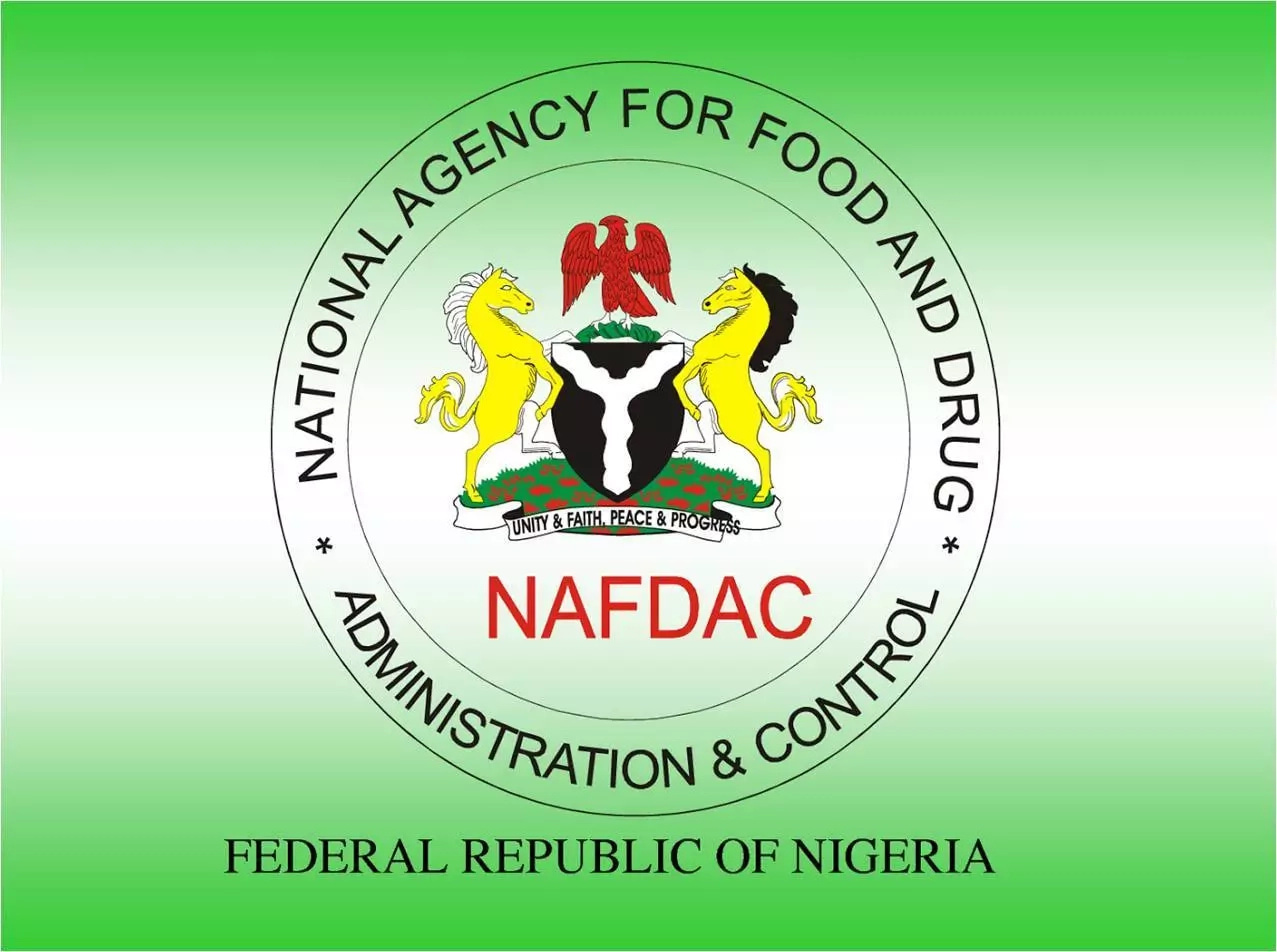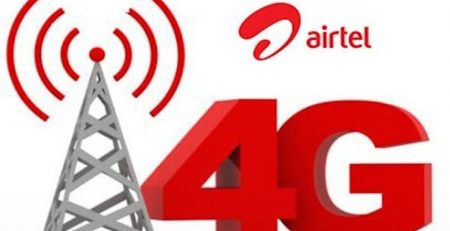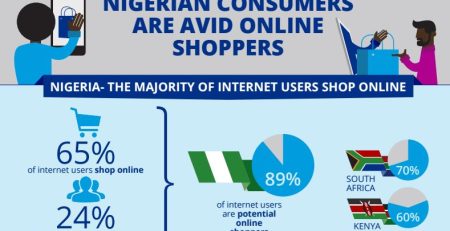Government Agencies that Support SMEs in Nigeria
If you are a startup entrepreneur, corporate organization or foreign investor currently doing business in Nigeria or seeking investment opportunities in Nigeria; there are lots of business activities you can achieve with this list of top government agencies that support SMEs in Nigeria. You will also need responsive website designs, social media marketing, and search engine optimization strategies to grow your business, increase your online visibility and make more sales.
Nigeria is the largest economy in Africa and, according to Goldman Sachs, the nation is one the next 11 countries with a high potential of becoming among the world’s largest economies in the 21st century. It is the most populous country in Africa with about 200.5 million people; of which over 38% of the population are between the ages of 15-35 years.
As a Nigerian business owner, you are sure to work with these institutions while registering your business in Nigeria, while obtaining products licenses, import trade and/or export business permits. Their services include but not limited to providing marketing research, skills acquisition programmes, products developing policies, regulatory standards and financial support to micro, small and medium sized enterprises in Nigeria.
Some of these government agencies were established out of the predicated effects of the consistent economic recession, the drastic reduction in capacity utilization of locally made goods and raw materials, the rising levels of unemployment among Nigerian youths, and the macro-economic policies of the government; such as structural adjustment programme (SAP), the devaluation of the Naira, and the privatization of the economy.
As a leading business development and corporate branding company in Nigeria, we have discussed the Role of SMEs in the Nigeria Economic Development; and some of the key challenges confronting small businesses in Nigeria. From our business reviews, we saw how the Nigerian state and federal government have continued to play a far reaching roles in tacking theses critical problems and below are some notable agencies of business in Nigeria that may server one or more of your business interests.
Top 10 Government Agencies that Support SMEs in Nigeria
#1. The Nigerian Export Promotion Council
The Nigerian Export Promotion Council (NEPC) is the Federal Government of Nigeria’s apex institution for promoting development and diversification of exports in Nigeria. The institution has over the years worked to achieve its mandate by coordinating and harmonizing export development and promotion activities in Nigeria.
NEPC also takes the lead in all national export programs, interfacing with international trade agencies and organizations on cooperative activities and capacity building. If you are a local manufacturer or agric producer in Nigeria, then it will interest you to know that the Nigerian Export Promotion Council provides strategic programmes and operational direction to businesses and individuals who want to export their made in Nigeria goods to different parts of the world.
You can register as a Nigerian exporter at NEPC official website. This webpage also presents all the information you need to know about obtaining an Exporter’s Certificate from NEPC.
Nigerian Export Promotion Council
- Corporate Office: Plot 424, Aguiyi Ironsi Street, Maitama, Abuja, Nigeria; P. M. B. 133 Garki, Abuja
- Tel: +234 (9) 462 1555
- Email: enquiries@nepc.gov.ng
#2. The National Economic Reconstruction Fund
The National Economic Reconstruction Fund (NERFUND) was set up to serve as a medium to long-term financing to viable Small and Medium Scale Production Enterprises in Nigeria. The grand objectives of NERFUND were to increase the quantum of goods and services available for local consumption and export; to provide the needed employment and expand Nigeria’s production base with added value to the economy.
However, only the most viable projects may benefit from the NERFUND loans programme. The ultimate aim is to re-orientate the nation towards a production culture from the old trading culture. Thus, the National Economic Reconstruction Fund was established by Decree No. 2 of 1989 to act as a catalyst towards the stimulation of the rapid rise of real production enterprises in the country. The agency was mandated to provide long/medium term loans to entrepreneurs through commercial/merchant banks for industrial growth of Nigeria.
National Economic Reconstruction Fund
- Corporate Office: 3, Zinguichor Street, Off IBB Way, Beside Abuja Electricity Distribution Company, Wuse Zone 4, P.M.B 319, Garki, Abuja.
- Tel: +234 9 2904838.
- Email: info@nerfund.com.ng
#3. The Central Bank of Nigeria
The Central Bank of Nigeria is the apex monetary authority in Nigeria that was established by the CBN Act of 1958. The CBN commenced operations on July 1, 1959. The major regulatory objectives of the apex bank are to maintain the external reserves of the country, to promote monetary stability, and to act as a banker of last resort and financial adviser to the federal government.
Nevertheless, the bank had become involved in lending directly to consumers, contravening its original intention to work through commercial banks in activities involving consumer lending. Also, the Nigerian government through the central bank has been actively involved in building the nation’s money and equity centers, forming securities regulatory boards and introducing treasury bills and instruments into the Nigeria capital market.
In addition to its core functions, the Central Bank of Nigeria has over the years performed some major developmental functions; focused on all the key sectors of the Nigerian economy – such as oil and gas, telecommunication, financial, agricultural and industrial sectors. The CBN in recognition of the role of SMEs in the economic development of Nigeria; has instructed all commercial banks in Nigeria to set aside certain percentage of their earnings for the funding of the small and medium sized business sector.
The Central Bank of Nigeria
- Corporate Office: Plot 33, Abubakar Tafawa Balewa Way, Central Business District, Cadastral Zone, Abuja, Federal Capital Territory, Nigeria.
#4. Federal Institute of Industrial Research Oshodi
The Federal Institute of Industrial Research Oshodi (FIIRO) is a government parastatal under the Federal Ministry of Science and Technology. The organization was the idea of an economic mission sent to Nigeria in 1953 by the World Bank; due mainly to the fact that industrial research activities in Nigeria were diffused and uncoordinated. The FIIRO projects, resources, publications and training workshops are actively identified and achieved through its research and development (R&D) pursuits.
FIIRO was setup in 1956 as Nigeria’s foremost market research agency with the mandate of accelerating industrialization in Nigeria; and has over the years developed technologies that have promoted the ideals of entrepreneurship development in Nigeria. The institute has locally sourced alternative raw materials for industries, adequate food processing techniques, improved nutritional contents, and locally fabricated machines, equipment and many more in its archives.
Federal Institute of Industrial Research Oshodi
- Corporate Office: 3, FIIRO Road, Near Cappa Bus Stop, Off Agege Motor Road, Oshodi Lagos Nigeria.
- Phone: 08023415016,
- Email: info@fiiro.gov.ng
#5. The Nigerian Bank of Industry Limited
The Bank of Industry Limited (BOI) is one of the oldest and of course the largest Nigeria Development Finance Institution under the agency of the Federal Ministry of Finance. The institution was reconstructed in 2001 out of the merger between the Nigerian Industrial Development Bank (NIDB) Limited (which was incorporated in 1964) and the Nigeria Bank of Commerce and Industry (NBCI).
Following a successful institutional, operational and financial restructuring programme embarked upon in 2002, the Nigeria Bank of Industry has transformed itself into an efficient, focused and profitable institution that is well placed to effectively carry out its primary mandate of providing long term financing to the industrial sector of the Nigerian economy. Its authorized share capital of 250 billion puts the bank in a better position to address the nation’s rising economic profile in line with its mandate.
The Nigerian Bank of Industry Limited
- Corporate Office: BOI House: Plot 256, Zone A O; Off Herbert Macaulay Way, Behind Unity Bank Central Business District Abuja, Nigeria.
- Tel: (+234) 08073990022
- Email: customercare@boi.ng
#6. The Standards Organization of Nigeria
The Standards Organization of Nigeria (SON) is established by an Enabling Act Number 56 of December 1971 – the Standards Organization of Nigeria cap 412 of the laws of Federal Republic of Nigeria. The organization commenced its functions on 1 January 1970 with a governing body known as the Nigerian Standards Council. This Policy making body of SON is saddled with the responsibility of supervising the administration and financial management of the Organization.
The Standards Organization of Nigeria mandate includes preparation of Standards relating products, measurements, materials, processes and services; and their promotion at National, Regional and International levels. The Product Certification Directorate on its part is responsible for ensuring that locally manufactured products in Nigeria give the required degree of satisfaction to consumers; through compliance with Government policies on standardization and conformity assessment.
The purpose is to promote global competitiveness among domestic manufacturers and encourage continual improvement on the quality of products in line with the statutory obligation of the Standards Organization of Nigeria. Products Certification for Export involves activities relating to issuance of Certificates of Conformance to applicable standards; contractual documents for products to facilitate export trade.
SON is also actively involved in import inspection of goods and quality assessment across the Nigerian ports and through her activities on the Single-Window for Trade platform. The importance of these exercises is enormous, considering the economic and health/safety implications of influx of substandard goods into the country. Furthermore, the Standards Organization of Nigeria is a membership body of a global network of the world’s leading standardizers called the International Organization for Standardization (ISO).
The Standards Organisation of Nigeria
- Corporate Office: No.52 Lome Crescent Wuse Zone 7 Abuja, Wuse +2349 Nigeria.
- Tel: +234 1 27 08 247
#7. National Agency for Food and Drug Administration and Control
The National Agency for Food and Drug Administration and Control (NAFDAC) is a federal agency under the Federal Ministry of Health and was officially established in October 1992. NAFDAC regulates and controls quality standards for the manufacture, importation, exportation, advertisement, distribution, sale and use of food, drugs, cosmetics, medical devices, chemicals and packaged water in Nigeria.
The agency was established by Decree No. 15 of 1993 as amended by Decree No. 19 of 1999 and now the National Agency for Food and Drug Administration and Control Act Cap N1 Laws of the Federation of Nigeria 2004. The agency is carrying out public enlightenment campaigns and sensitisation workshops to further educate and increase awareness about certain critical issues that impact on our success as a nation; with efforts being intensified to beef up our regulatory capacity through trainings and upgrading of our surveillance systems.
Thus, NAFDAC collaborates with a number of Government Agencies and Civil Society Organizations, including Standards Organisation of Nigeria (SON), National Drug Law Enforcement Agency (NDLEA), Pharmacists Council of Nigeria (PCN), the Nigeria Police Force (NPF), the Nigeria Custom Service (NCS), the Nigeria Consumer Protection Council (CPC), Pharmaceutical Manufacturers Group of Manufacturers Association of Nigeria (PMG-MAN), Association of Food Beverages and Tobacco Employers (AFBTE), and so on.
National Agency for Food and Drug Administration and Control
- Corporate Office: Plot 2032, Olusegun, Obasanjo Way, Zone 7, Wuse, Abuja, Nigeria.
- Tel: +234(0)-1-4609750
- Email: nafdac@nafdac.gov.ng
#8. Raw Materials Research and Development Council
The Raw Materials Research and Development Council (RMRDC) is an agency of the Federal Government of Nigeria vested with the mandate to promote the development and utilization of Nigeria’s industrial raw materials. It originated from the recommendations of a Workshop on Industrial Matters, organized by the Manufacturers Association of Nigeria (MAN) and the Nigerian Institute of Social and Economic Research (NISER) in July 1983.
The organization was established by Decree (Now Act) No.39 of 1987, but commenced operation on February 10, 1988. It is today, Nigeria’s focal point for the development and utilization of the nation’s vast industrial raw material. The Raw Materials Research and Development Council (RMRDC) was established at a time when dwindling foreign exchange earnings from petroleum was expended to importing raw materials and products which were available or could be competitively produced in Nigeria.
It is important to note that RMRDC provides opportunities for hands-on entrepreneurship skill acquisition in diverse resource-based investment areas of the 10 industrial sectors of Manufacturers Association of Nigeria (MAN) namely: Food, beverage and tobacco; textile and wearing apparel; leather and leather products; wood and wood products; chemicals, pharmaceuticals and plastics, rubber; motor vehicle and miscellaneous; electrical and electronics; pulp and paper; as well as new and advanced materials; promoting value addition to our abundant natural resources.
The Council also offers business support, consultancy and advisory services to entrepreneurs in various sectors of the economy – to include enterprises start-up, business documentation, equipment sourcing, production, business plan/feasibility studies development, ICT and digital marketing of products. RMRDC also provides platforms for B2B networking through exhibitions, trade fairs, workshops seminars, etc.
Raw Materials Research and Development Council
- Corporate Office: Number 17, Agiyi Ironsi Street, Maitama District, FCT, Abuja Nigeria.
- Tel: +2347098805375
- Email: ceo@rmrdc.gov.ng
#9. The Corporate Affairs Commission
No legal business or corporate organization can undermined the place of the Nigeria Corporate Affairs Commission (CAC) in its contributive efforts to the Easy of Doing Business in Nigeria through company registration. The Corporate Affairs Commission of Nigeria was established in 1990 by the Companies and Allied Matters Act No 1 (CAMA) 1990, now on Act cap C20 Laws of the Federation of Nigeria.
The establishment of the Commission as an autonomous body was as a result of the perceived inefficiency and ineffectiveness of the erstwhile Company Registry, a department under the Federal Ministry of Commerce and Tourism which was then responsible for the registration and administration of the repealed Companies Act of 1968. The CAC is therefore charged with the responsibility among others to regulate the formation, management and winding up of companies in Nigeria.
It carry out its functions through accredited members of Association of National Accountants of Nigeria, the Institute of Chartered Accountants of Nigeria, Institute of Chartered Secretaries and Administrators of Nigeria (ICSAN) the Nigerian Bar Association (NBA), among others.
The Corporate Affairs Commission
- Corporate Office: Plot 420, Tigris Crescent, Off Aguiyi Ironsi Street, Maitama, Abuja Nigeria.
- Tel: +234-818-229-8971
- Email: cservice@cac.gov.ng
#10. Small and Medium Enterprises Development Agency of Nigeria
The Small and Medium Enterprises Development Agency of Nigeria (SMEDAN) was established by the SMEDAN Act of 2003 to promote the development of the Nigeria MSME sector of the Economy. The Agency positions itself as a One Stop Shop for Micro, Small and Medium Enterprises Development in Nigeria. The Micro Enterprises subsector is included in its clientele since they form the bedrock for SME’s.
The SMEDAN mandate as contained in the enabling Act makes them responsible for stimulating, monitoring and coordinating the development of the MSMEs sub-sector in Nigeria; initiating and articulating policy ideas for small and medium enterprises growth and development; promoting and facilitating development programmes, instruments and support services to accelerate the development and modernization of MSME operations.
Small and Medium Enterprises Development Agency of Nigeria
- Corporate Office: No 35 Port Harcourt Crescent, Area 11, Off Gimbiya Street, Area 11, Garki, Abuja.
- Website: smedan.gov.ng
- Email: info@smedan.gov.ng
#11. The Federal Ministry of Industry, Trade and Investment
The Federal Ministry of Industry, Trade and Investment (FMITI) was restructured in 2011 to drive the growth of the Nigerian economy, using the model being implemented in both developed and emerging economies like the United Kingdom, Malaysia and Singapore. This transformation initiative expanded its portfolio to include investment that hitherto was not part of its original mandate as the Federal Ministry of Commerce and Industry.
Its mandate includes but not limited to create enabling environment to stimulate domestic investment and attract foreign direct investment in all sectors of the economy and make Nigeria the most preferred investment destination in Africa. To facilitate trade in goods and services and maximize the benefits of international trade through functional bilateral and multilateral trade relations with other countries of the world; and to boost the development of Micro, Small and Medium Enterprises (MSME) as the engine of economic growth.
The execution of the mandate of FMITI are facilitated through its various programmes such as the Nigerian Industrial Revolution Plan (NIRP), National Enterprise Development Programme (NEDEP), Trade Policy, enabling environment for the promotion of investment, industrialization of the country; etc.
For trademark registration in Nigeria; trademarks, patents and design registry are under the Commercial Law Department of the Federal Ministry of Industry, Trade and Investment. The Trade Mark Act, cap T13; and the Trade Mark Regulations 1990 define marks used to identify source of goods from a party in the course of trade. Registering your business trademarks like brand name, slogan, signature, logo, label, letters, etc.; give you the legal right to the trademarks with respect to particular goods or class of goods – against any infringement by other users.
Federal Ministry of Industry, Trade and Investment
- Corporate Office: Old Secretariat, Area 1, Garki, FCT, 90001, Nigeria
- Website: http://www.fmiti.gov.ng
Wrapping up: Government Agencies that Support SMEs in Nigeria
So far, this is our list of top government agencies that support SMEs in Nigeria. However, this list may not be complete as there are so many agencies of government that we may perhaps omitted. The agencies listed here are government development parastatals, regulatory agencies, research and financial institutions supporting the small and medium enterprises or the SME subsector in Nigeria.
These institutions were over the years established by the Federal Government to proffer interventionist solutions that will mitigate the risk levels and problems posed by unstable social-economic environments in Nigeria. It’s this article helpful? Let us know the best Nigeria government agencies that have helped in your business development in the comment section. To keep the conversation going, follow us on Twitter, Facebook @abbakinglova.












Comments (5)
Good job
I need loan of 50,000000 for agriculture
I am a cassava farmer with an 15 acres of land (rented) in idumu Odin area of edo state I need a load for these next farming season. Am a very sincere farmer u may want to verify
There are much need for guide, sponsorship and promotion of industries, distribution, manufacturing and service businesses in my domain amongst the youths I had been grooming for entrepreneurship skills development and business knowledge including agriculture are almost stranded for want of support. Please how can they be helped? From GOD’SPRENEUR INTERNATIONAL; Thanks.
Okay I’m a fashion designer I learn work for so many years ago so I don’t have money to open my place so please I need help I need money to buy machine and start my business new because I’m suffer a lot because of how the country is no one in no food so please I need money to help myself and others 07085162632